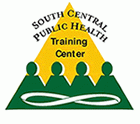
The Gulf Oil Spill: The Environmental Impact
Course Description:
The explosion of the Deepwater Horizon on April 2010 and the consequent Gulf Oil Spill has raised many public health questions. Will the oil make me sick? What could be in the air? Is the seafood that gets to market safe? Is it safe to go to the beach? In order to assess the public health effects, it's important to understand the components and characteristics of oil. This course will provide information about crude oil, weathered oil, and dispersants. Public health aspects related to exposure to air contaminants, seafood, beach advisories, and worker safety will also be discussed.
Target Audience
Academic Faculty/Staff, Federal Government Employees, State Government Employees, Local Government Employees, Non-Government Employees and Students
Learning Objectives
- Describe the Deepwater Horizon incident and oil spill
- Describe the components of crude oil and its characteristics
- Give the characteristics of weathered oil and relate to health
- Explain how dispersants work on oil
- Describe public health actions related to exposure to air contaminants, seafood, beach advisories, and worker safety
Instructor:

LuAnn, White, PhD, DABT
Toxicologist
Director, Tulane Center for Applied Environmental Public Health
Tulane School of Public Health and Tropical Medicine
New Orleans, LA
Available Credit
- 2.00 Participation/CETulane Professional and Continuing Education (PaCE) awards 2.00 hour(s) of credit for completing The Gulf Oil Spill: The Environmental Impact
Price
Required Hardware/software
System Settings
This course is designed to work most effectively if your computer and internet connection meet certain minimal requirements. This course can be accessed using a Windows 10 PC or a Mac with High Sierra1, Mojave, or Catalina. Pop-up blockers should be disabled when viewing the course. Internet Explorer 11 (for Windows 10), or the current version of Google Chrome, Mozilla Firefox, or Apple Safari (for Windows 10 and or Mac) is required. Many of our courses require Java and JavaScript enabled.
Links to External Websites
Links to websites outside this course will open in a new window or tab. Some browsers may minimize the course window. If this occurs, maximize the course window to return to the course.
Adobe Acrobat Reader (for desktops and laptops)
Adobe Acrobat Reader is required to access some documents in this course. If you need to download a free copy of Acrobat Reader, click here.
Internet Connection Speed
A minimum download speed of 1.5 Mbps is recommended for an optimal experience, which is commonly the speed associated with a basic DSL or a cellular/satellite connection. A faster connection, such as cable or fiber service, with further enhance your online experience. A Wi-Fi connection is generally acceptable, but it is dependent upon one of the two services mentioned above. You can check your internet connection speed at http://www.speedtest.net/.

 Facebook
Facebook X
X LinkedIn
LinkedIn Forward
Forward